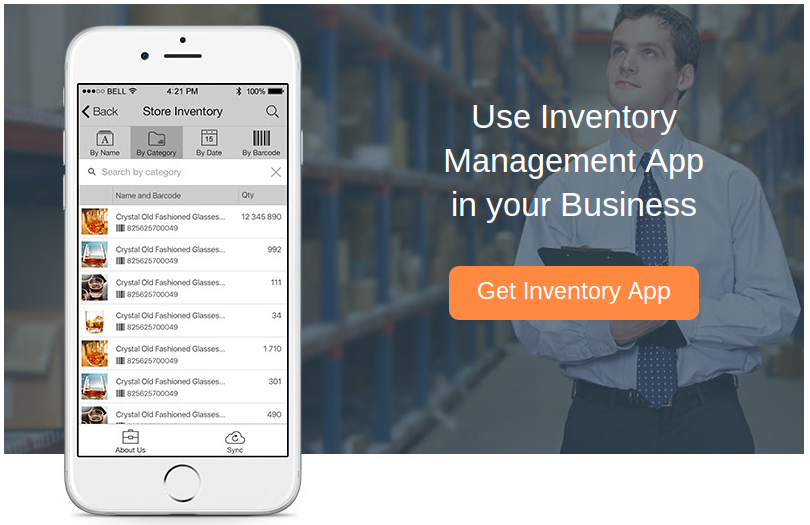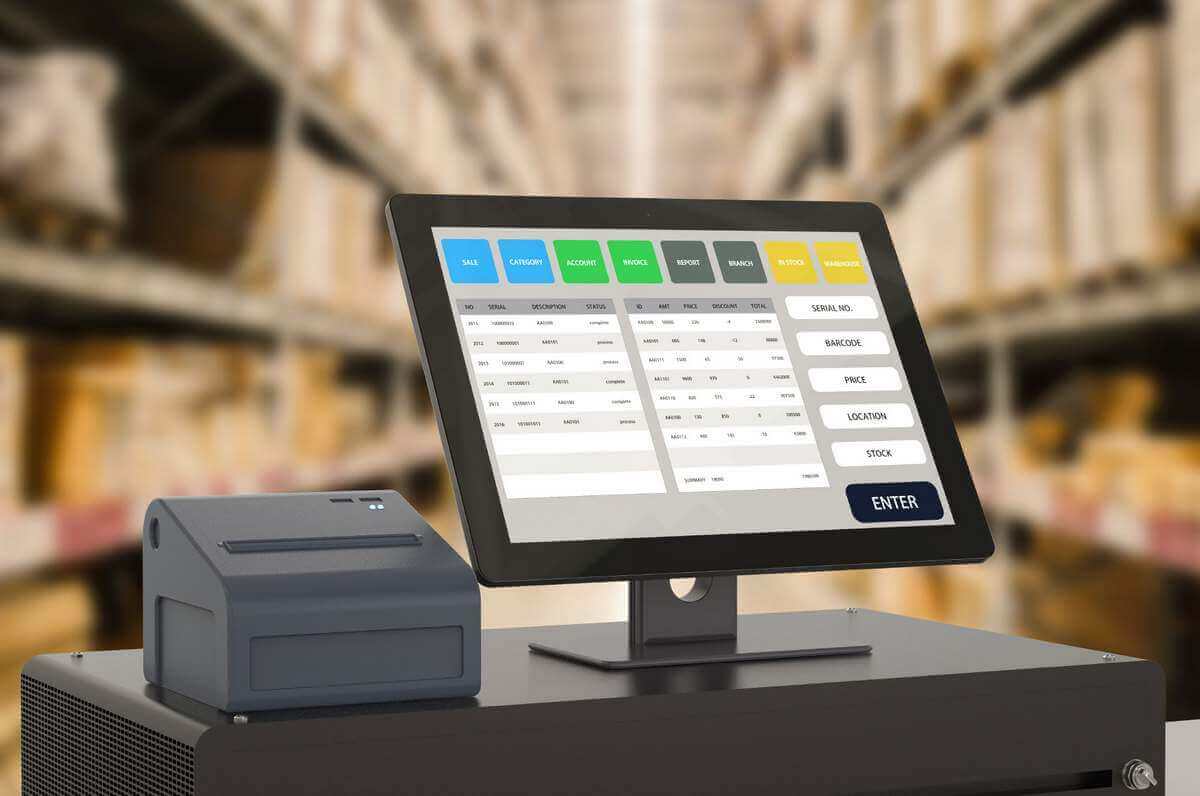Discover the best inventory management app for small businesses and unlock the secrets to streamlined operations, reduced costs, and enhanced customer satisfaction. Our comprehensive guide explores the top apps, their key features, and the benefits they offer, empowering you to make informed decisions and elevate your business to new heights.
In this digital age, inventory management has become a crucial aspect of running a successful small business. With the right app, you can automate tasks, gain real-time visibility into your stock levels, and make data-driven decisions that drive growth. Join us as we delve into the world of inventory management apps and help you find the perfect solution for your business.
Best Inventory Management Apps for Small Businesses
Managing inventory can be a daunting task for small businesses, but the right inventory management app can make it a breeze. These apps help you track your stock levels, manage orders, and generate reports, so you can stay on top of your inventory and avoid costly mistakes.
Here are some of the best inventory management apps for small businesses:
Inventory Management Apps
- Square Inventory: Square Inventory is a free inventory management app that integrates with Square’s point-of-sale system. It allows you to track your stock levels, create and manage orders, and generate reports. Square Inventory is a great option for small businesses that are already using Square for their point-of-sale needs.
- Shopify: Shopify is an e-commerce platform that offers a variety of inventory management features. Shopify allows you to track your stock levels, create and manage orders, and generate reports. Shopify is a great option for small businesses that sell products online.
- Zoho Inventory: Zoho Inventory is a cloud-based inventory management app that offers a variety of features, including stock tracking, order management, and reporting. Zoho Inventory is a great option for small businesses that need a comprehensive inventory management solution.
- QuickBooks Commerce: QuickBooks Commerce is an inventory management app that integrates with QuickBooks Online. QuickBooks Commerce allows you to track your stock levels, create and manage orders, and generate reports. QuickBooks Commerce is a great option for small businesses that use QuickBooks Online for their accounting needs.
- TradeGecko: TradeGecko is a cloud-based inventory management app that offers a variety of features, including stock tracking, order management, and reporting. TradeGecko is a great option for small businesses that need a powerful inventory management solution.
Benefits of Inventory Management Apps for Small Businesses

Inventory management apps provide numerous advantages to small businesses, enabling them to streamline operations, reduce costs, and enhance customer satisfaction. Here are some key benefits:
Streamlined Operations: Inventory management apps automate many tasks, reducing the time and effort required for manual processes. They provide real-time visibility into inventory levels, eliminating the need for manual counting and data entry. This automation reduces errors, improves accuracy, and frees up time for other business-critical activities.
Reduced Costs
- Reduced Labor Costs: Inventory management apps automate tasks, reducing the need for manual labor. This can result in significant savings on labor costs.
- Lower Inventory Holding Costs: By providing real-time visibility into inventory levels, inventory management apps help businesses optimize their stock levels. This reduces the risk of overstocking and minimizes the costs associated with holding excess inventory, such as storage, insurance, and spoilage.
- Reduced Shrinkage and Theft: Inventory management apps provide accurate and up-to-date information on inventory levels, helping businesses identify discrepancies and prevent shrinkage and theft. This can lead to significant cost savings and improved profitability.
Improved Customer Satisfaction
- Increased Product Availability: Inventory management apps ensure that businesses have the right products in stock at the right time. This reduces the likelihood of stockouts, which can lead to lost sales and dissatisfied customers.
- Faster Order Fulfillment: Automated inventory management processes enable businesses to fulfill orders more quickly and efficiently. This reduces delivery times and improves customer satisfaction.
- Improved Customer Service: Inventory management apps provide customer service representatives with real-time access to inventory information. This enables them to answer customer inquiries accurately and promptly, enhancing the overall customer experience.
Choosing the Right Inventory Management App: Best Inventory Management App For Small Business

Selecting the right inventory management app is crucial for small businesses. Consider these key factors:
Features: Evaluate the features offered, ensuring they align with your specific business needs. Look for features like product tracking, order management, and reporting.
Compatibility, Best inventory management app for small business
Ensure the app is compatible with your existing systems and devices. Check for integrations with accounting software, POS systems, and e-commerce platforms.
Scalability
Consider your future growth potential. Choose an app that can scale with your business, accommodating increased inventory and transaction volume.
Support
Reliable support is essential. Look for apps that offer dedicated customer support, documentation, and online resources.
Implementing an Inventory Management App
Implementing an inventory management app is a crucial step for small businesses looking to streamline their inventory management processes. By following a structured approach, businesses can ensure a successful implementation that delivers the desired benefits.
To implement an inventory management app effectively, consider the following steps:
Data Migration
Data migration involves transferring existing inventory data from your current system to the new inventory management app. It is important to plan this process carefully to ensure data accuracy and integrity. Consider the following:
- Identify all data sources that need to be migrated, including product information, stock levels, and historical transactions.
- Determine the best method for data migration, such as manual entry, CSV import, or API integration.
- Test the data migration process thoroughly to ensure that all data is transferred accurately and completely.
Training
Proper training is essential for ensuring that your team can use the inventory management app effectively. Consider the following:
- Provide comprehensive training on the app’s features and functionality.
- Involve all team members who will be using the app, including warehouse staff, sales personnel, and management.
- Use a combination of online resources, hands-on training, and role-specific scenarios to ensure thorough understanding.
Ongoing Maintenance
Regular maintenance is necessary to keep your inventory management app running smoothly. Consider the following:
- Establish a schedule for software updates and security patches.
- Monitor the app’s performance and usage to identify any potential issues.
- Regularly review and update inventory data to ensure accuracy.
Case Studies of Successful Inventory Management Implementations
Many small businesses have experienced remarkable success by implementing inventory management apps. These real-world examples illustrate the challenges they overcame, the solutions they employed, and the positive outcomes they achieved.
One such example is a small online retailer that faced challenges with stock discrepancies and inefficient order fulfillment. By implementing an inventory management app, they gained real-time visibility into their inventory levels, streamlined their order processing, and reduced shipping errors by 25%.
Case Study: Ace Hardware
Ace Hardware, a renowned home improvement retailer, successfully implemented an inventory management system to address its inventory challenges. The system provided accurate and up-to-date inventory data, enabling Ace Hardware to optimize its stock levels, reduce shrinkage, and improve customer satisfaction.
Future Trends in Inventory Management for Small Businesses
The future of inventory management for small businesses is being shaped by emerging technologies and trends, such as cloud-based solutions, artificial intelligence (AI), and mobile optimization. These advancements are transforming the way small businesses manage their inventory, enabling them to improve efficiency, reduce costs, and gain a competitive edge.
Cloud-Based Solutions
Cloud-based inventory management systems are becoming increasingly popular for small businesses. These systems offer a number of advantages, including:
- Accessibility: Cloud-based systems can be accessed from anywhere with an internet connection, making it easy for small businesses to manage their inventory on the go.
- Scalability: Cloud-based systems can be easily scaled up or down to meet the changing needs of a small business.
- Affordability: Cloud-based systems are often more affordable than traditional on-premise systems.
Artificial Intelligence (AI)
AI is playing an increasingly important role in inventory management for small businesses. AI-powered systems can be used to:
- Automate tasks: AI-powered systems can automate repetitive tasks, such as inventory tracking and order processing, freeing up small business owners to focus on more strategic tasks.
- Predict demand: AI-powered systems can analyze historical data to predict future demand, helping small businesses to avoid overstocking or understocking.
- Optimize inventory levels: AI-powered systems can help small businesses to optimize their inventory levels, reducing the risk of stockouts and excess inventory.
Mobile Optimization
Small businesses are increasingly using mobile devices to manage their inventory. Mobile-optimized inventory management systems offer a number of benefits, including:
- Convenience: Mobile-optimized systems can be accessed from anywhere, making it easy for small business owners to manage their inventory on the go.
- Real-time updates: Mobile-optimized systems provide real-time updates on inventory levels, helping small businesses to make informed decisions about their inventory.
- Improved accuracy: Mobile-optimized systems can help to improve inventory accuracy by reducing the risk of human error.
Final Conclusion

Embracing the best inventory management app for your small business is not just a technological upgrade; it’s a strategic investment in the future of your enterprise. By implementing these powerful tools, you’ll gain a competitive edge, optimize your operations, and set the stage for sustained growth. Remember, the key to success lies in choosing the right app and leveraging its capabilities to their full potential. So, embark on this journey with us and discover the transformative power of inventory management apps for small businesses.
FAQ Corner
What are the key features to look for in an inventory management app for small businesses?
Look for apps that offer features such as real-time inventory tracking, purchase order management, barcode scanning, reporting and analytics, and integration with other business systems.
How can inventory management apps help small businesses reduce costs?
By optimizing inventory levels, reducing shrinkage, and improving efficiency, inventory management apps can help small businesses minimize waste and save money.
What are some of the challenges small businesses face when implementing inventory management apps?
Common challenges include data migration, training staff, and ensuring compatibility with existing systems. However, with proper planning and support, these challenges can be overcome.